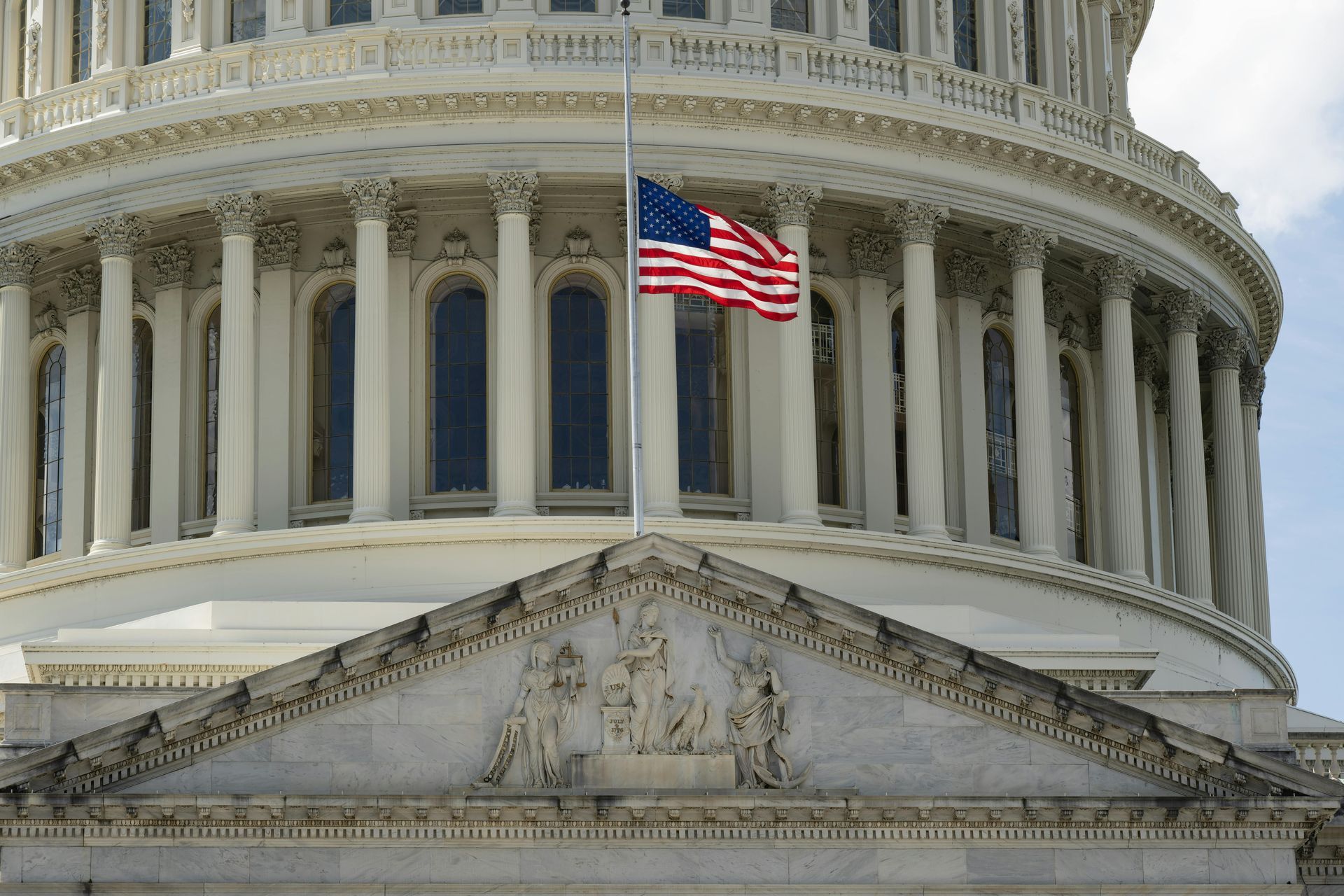DHS presenta propuesta para mejorar el programa de trabajadores con ocupaciones especializadas H-1B
Kris Quadros-Ragar • January 11, 2024
Click here to read this article in English
El Departamento de Seguridad Nacional de los EE. UU. (DHS), a través de los Servicios de Ciudadanía e Inmigración de los EE. UU. (USCIS), ha presentado un Aviso de reglamentación propuesta (NPRM) con el objetivo de modernizar el programa de trabajadores de ocupación especializada H-1B. Esta reforma propuesta tiene como objetivo simplificar los requisitos de elegibilidad, mejorar la eficiencia del programa, proporcionar mejores beneficios y flexibilidades tanto para los empleadores como para los trabajadores y reforzar las medidas para garantizar la integridad del programa.
El programa H-1B juega un papel vital al permitir que los empleadores estadounidenses recluten el talento que necesitan para satisfacer las demandas comerciales y mantener su competitividad en el ámbito global, al tiempo que cumplen con las protecciones legales de los trabajadores estadounidenses. Alejandro N. Mayorkas, Secretario de Seguridad Nacional, afirma que el DHS está comprometido a desarrollar e implementar regulaciones que agilicen los procesos para empleadores y trabajadores en el sistema de inmigración. La principal prioridad de la Administración Biden-Harris es atraer talento global, reducir cargas indebidas para los empleadores y combatir el fraude y el abuso en el sistema de inmigración.
Según el programa de visas de no inmigrante H-1B, los empleadores estadounidenses pueden emplear temporalmente a trabajadores extranjeros en ocupaciones especializadas que requieren conocimientos altamente especializados y una licenciatura o superior en el campo específico.
La regla propuesta describe cambios significativos, incluida una modificación en la forma en que USCIS lleva a cabo el proceso de selección de registro H-1B para reducir el potencial de uso indebido y fraude. El sistema actual permite una mayor probabilidad de selección en la lotería para las personas con más registros presentados en su nombre. Sin embargo, la propuesta sugiere que cada individuo con un registro presentado debería ingresar al proceso de selección una vez, independientemente del número de registros presentados. Este cambio tiene como objetivo nivelar el campo de juego y reducir el incentivo de presentar múltiples registros para el mismo beneficiario para aumentar sus probabilidades de selección. Además, podría ampliar las oportunidades laborales para los beneficiarios, ya que cada solicitante de registro con un beneficiario seleccionado tendría la opción de presentar una petición H-1B en su nombre.
La norma propuesta también introduce varias otras disposiciones, entre ellas:
- Simplificar los criterios de elegibilidad revisando los criterios para puestos de ocupaciones especializadas, reduciendo la confusión y aclarando que un puesto puede aceptar una variedad de títulos siempre que estén directamente relacionados con las funciones del puesto.
- Mejorar la eficiencia del programa al formalizar la práctica de los adjudicadores de aplazar determinaciones anteriores cuando no ha habido cambios en los hechos subyacentes durante una nueva presentación.
- Extender los beneficios y flexibilidades a empleadores y trabajadores, como ampliar las exenciones al límite H-1B para ciertas entidades sin fines de lucro, organizaciones gubernamentales de investigación y beneficiarios que no sean empleados directos de una organización calificada. También proporciona flexibilidad adicional para los estudiantes con visa F-1 que buscan cambiar su estatus a H-1B e introduce nuevos requisitos de elegibilidad H-1B para empresarios emergentes.
- Fortalecer las medidas de integridad evitando que entidades relacionadas presenten múltiples registros para el mismo beneficiario, facultando a USCIS para realizar visitas al sitio y aclarando que el incumplimiento de las visitas al sitio puede llevar a la denegación o revocación de la petición.
El NPRM (publicado aquí) invita a comentarios públicos durante un período de 60 días después de su publicación en el Registro Federal. Es fundamental tener en cuenta que estos cambios propuestos solo entrarán en vigor después de pasar por el proceso de finalización y recibir la aprobación mediante una revisión federal. Algunos de estos cambios pueden implementarse a tiempo para la temporada límite H-1B del año fiscal 2025, que se espera que comience a principios de 2024. USCIS ha indicado la posibilidad de implementar estos cambios de manera incremental a través de una o más publicaciones finales de reglas.
Fuente:
Enlace NPRM:
Este blog no pretende ser asesoramiento legal y nada aquí debe interpretarse como el establecimiento de una relación abogado-cliente. Programe una consulta con un abogado de inmigración antes de actuar según cualquier información leída aquí.

The federal government entered a partial shutdown on January 31, 2026, after Congress failed to pass a final funding package. While this follows the record-breaking 43-day shutdown from last fall, this disruption is expected to be brief, with a House vote anticipated for the first week of February. However, as of February 2, several key departments are operating under shutdown contingencies. If you are an employer or a foreign national, here is what you need to know about how this affects your immigration matters: Impacts for Employers Certified LCAs: The Department of Labor (DOL) has suspended the processing of Labor Condition Applications. This means employers cannot currently obtain the certifications required to file new H-1B, H-1B1, or E-3 petitions. PERM and Prevailing Wages: Processing for PERM labor certifications and prevailing wage determinations has halted. This will likely cause a backlog once the government reopens. E-Verify: The E-Verify system is typically taken offline during a shutdown. Employers should continue to follow I-9 requirements but may be unable to resolve Tentative Nonconfirmations (TNCs) until the system is restored. Impacts for Employees and Families Consular Services: While U.S. embassies and consulates are fee-funded, their operations may be reduced. If you have an upcoming visa interview, check the specific consulate's website for status updates, as delays are possible. USCIS Operations: Because USCIS is primarily funded by application fees, it remains open. You should still attend scheduled interviews and biometrics appointments unless notified otherwise. CBP and Travel: U.S. Customs and Border Protection (CBP) functions are essential. Ports of entry remain open, though you may experience longer waiting times due to staffing adjustments. At Santos Lloyd, we are closely monitoring the situation as it unfolds. Whether you are an employer seeking guidance on how this shutdown impacts your hiring plans or an employee with general questions regarding if or how you may be affected, please reach out to our office. We remain dedicated to providing the updates and professional assistance necessary to help you navigate these disruptions.

U.S. Citizenship and Immigration Services (USCIS) has announced a major change to the H-1B cap selection process. Under a final rule issued on December 29, 2025, USCIS will replace the long-standing random H-1B lottery with a wage-weighted selection system that favors higher-paid and more complex positions. The rule is scheduled to take effect on February 27, 2026 , just ahead of the fiscal year 2027 H-1B cap registration season, unless delayed by legal challenges. If implemented, USCIS is expected to release additional guidance explaining how employers must submit registrations under the revised process. This change marks one of the most significant reforms to the H-1B program in recent years. Up until 2025, all registrations were treated equally once the annual cap was reached. Under the new system, selection odds will be tied to wage levels based on the U.S. Department of Labor’s Occupational Employment and Wage Statistics data. All H-1B registrations will still be placed into a single selection pool, but registrations tied to higher wage levels will receive multiple entries into that pool, increasing their likelihood of selection. Lower wage levels will receive fewer entries, making selection less likely but not impossible. H-1B wage levels are not determined solely by salary. Each wage level reflects the complexity of the job, the level of responsibility involved, and the education and experience required . Entry-level positions involving routine duties and close supervision are generally classified at the lowest wage level, while positions requiring independent judgment, advanced skills, and significant responsibility fall into higher wage levels. The highest wage level is reserved for roles that involve expert knowledge, strategic decision-making, and substantial leadership or technical authority. USCIS is expected to closely scrutinize selected petitions to ensure that the wage level claimed during registration is supported by the job duties and salary offered in the petition. Any discrepancies between the registration and the petition may result in requests for evidence, denials, or enforcement action. With the elimination of the purely random lottery, employers should begin preparing early by carefully evaluating job descriptions, wage levels, and overall H-1B strategy. Accurate classification and thoughtful planning will be essential under this new wage-based selection system. If you are an employer considering H-1B sponsorship, or a foreign professional wondering whether your position may qualify under the new wage-based system, consulting with experienced immigration counsel is more important than ever. Santos Lloyd Law is actively advising clients on H-1B cap registrations and strategy under the new rules. To discuss your options or determine whether you may qualify, contact our office to schedule a consultation.

During the recent administration there has been an increase in issuance of Requests for Evidence for EB-1A petitions for those of Extraordinary Ability. A Request for Evidence is a request that is made by USCIS that should explain how the evidence is deficient in proving the criteria argued and what additional evidence needs to be provided by the applicant to meet the criteria. EB-1A petitions are already normally subject to higher scrutiny because their approval is the first step needed to apply for Lawful Permanent Residence or a green card. USCIS normally requires not just evidence but that the evidence be provided with context and information to show why it matters in a particular field. For example, if you were providing evidence of your membership in an organization that requires outstanding achievements of its members, just providing evidence of the membership is not enough. You must explain what that membership is and provide background information on the organization granting the membership. You also need to provide evidence on the criteria that is used to select the members, information on those who select the members to show that they are recognized experts, other documentation such as articles about the membership organization to show its importance, and any other relevant evidence and background information to show that the criteria is met. A request for evidence being issued prior to the current administration was not uncommon, but in the current climate it is more surprising to not receive a request for evidence for this type of case. It is important to remember that a request for evidence is not a denial. Depending on the validity of the information in the request and the substance some Requests for Evidence can be overcome, and the case be approved. It is important to carefully review the request and note if there are any errors in the content and application of the regulations by USCIS. If you have an attorney, you should work with them and make sure that you provide any evidence you think may be helpful. Although there is a deadline by which a response must be submitted, attention to detail and patience will go a long way when dealing with having to respond to a request for evidence. If you believe you may qualify for this type of visa, please feel free to contact our office.



